Social and Economic Impact of Covid-19 across the Globe Today

Currently, the Coronavirus Disease (Covid-19) has affected 2,478,153 people worldwide and has claimed the lives of 166,122 people.
As the Covid-19 pandemic widens its reach, affecting millions of people across the globe today, countries are taking stringent measures to control the rapid spread of the highly contagious virus. It has been more than 4 months since the virus first appeared in the Wuhan district of China, and ever since it has spread to several parts of the world. Today, 210 countries are struggling to check the spread of the virus which has apparently returnedin its second phase in some places like Singapore and Hong Kong.

There is still no cure for the Covid-19 virus and the research is still on for a vaccine, which means the only proven solution right now is to adopt measures to check its spread. Social distancing and self-isolation are the two magic words that can save people right now, in addition to the use of Personal Protection Equipment (PPE), which include masks, hand sanitizers, protective glasses, gloves, and so on.However, it’s ironical that as governments across the world have imposed lockdown to prevent social interactions among people as a move to save their lives, it is this very approach that has emerged as a threat to global economy.
Understanding the Great Lockdown
The Great Lockdown is a term used to refer to the large-scale global recession, thatexperts say, will be the result of the long periods of lockdown that has adversely affected the economy beyond measure. Also known as the 2020 Coronavirus Recession, it is deemed to be the most dreaded recession in modern history since the Great Depression that hit the global economy in the early 1930s.As per the statement made by the International Monetary Fund (IMF) on 14th April 2020, the recession is currently on the verge of creeping into the economies of the G7 nations – the 7 largest economies in the world today – France, Canada, Italy, Germany, United Kingdom, Japan and the United States.
According to the IMF, the economic decline has affected or is all set to affect developed as well as developing economies of the world and this recession is reported to be far more critical than the one we all witnessed in 2009. What makes matters worse is that the Covid-19 pandemic came at a time when the global economy was already experiencing a slowdown in 2019that had adversely affected the growth of the stock market as well as consumer behaviour across the globe.
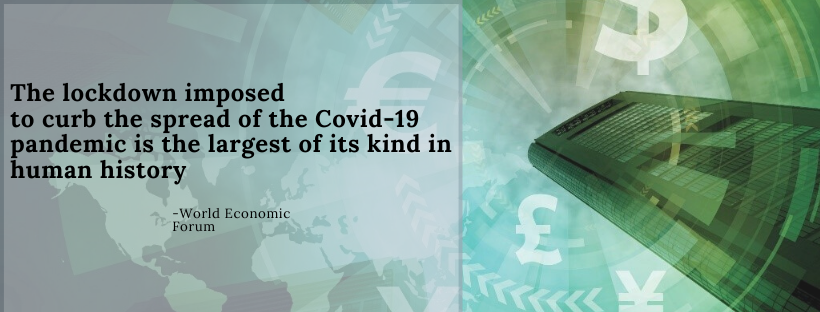
With a recession of such large proportions looming on the horizon, experts are concerned not just about the health of the people affected by the deadly virus, but also its impact on the global economy.
Effect of the Covid-19 Pandemic on the Global Economy
Even today, we’re not very sure about the nature of the virus and also how different people will react to an infection, how fast it can spread, etc. Predicting the scale of the impending recession is something that is quite impossible right now, because of the uncertainties associated with different aspects of the pandemic. We can expect an adverse effect on the economy, but the fact is thatit is impossible to make exact forecasts at this moment.
According to the UN Department of Economic and Social Affairs (DESA), one of the biggest impacts of the pandemic has been the disruption of the global supply chains and international trade.
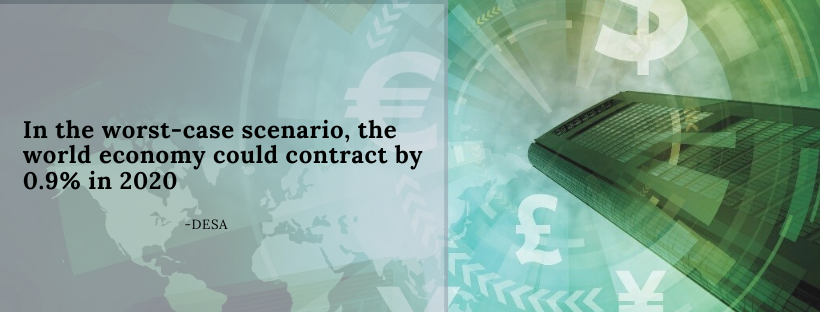
Expertsbelieve that the impact of the Covid-19 pandemic on the global economy could be through one of these 3 channels:
1] Since China today has a very huge role to play in the global economy, the lockdown in China and the subsequent closure of manufacturing units have had an impact on the economies of the Asian countries, like Japan and Korea, that export raw materials and supplies to these units.
2] There are several manufacturing companies across the globe that source their intermediate products from China. With the slowdown in China and the restrictions in global trade, these manufacturing units can suffer unless they can source the intermediate products from any other country.
3] The lockdown and temporary closure will affect the production in firms across the globe, creating a crisis that can be even more critical for firms with insufficient liquidity.
The Stock Market was one of the earliest indicators of the impending effects of the pandemic on global economy when most international indices experienced an average drop of 20% by the first week of March. Investors at this moment are not sure about how long this will last.To avoid taking a risk, they are looking for safer or more secure investment options, with many rushing to invest in U.S. Treasury bonds!
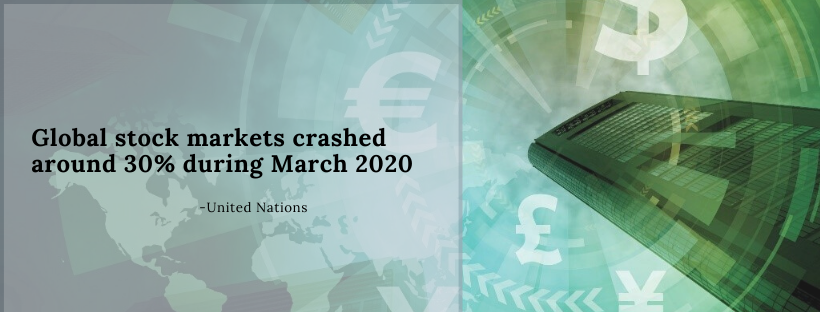
A Look at the Impact on Different Industries
As a result of the spread of the Covid-19 virus and the subsequent lockdown and restrictions on global trade, certain sectors of the economy have suffered more than the others. Let us have a look at the worst hit industries.
1] Airlines

According to the International Air Transport Association (IATA), the airlines industry faces its biggest setback, with $29 billion in lost revenues in 2020 alone. This is due to the lockdown and sealing of international borders, which has had a huge impact on air travel across the globe. With flights grounded, airlines had little option than to offer unpaid voluntary leaves to a large number of employees.
2] Travel & Tourism
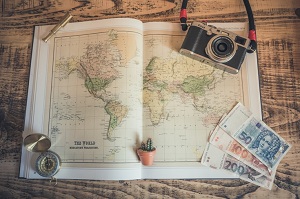
The travel industry is another one to bear the brunt of the pandemic, with losses amounting to millions every day. With trips being cancelled in Asia as well as rest of the world, the travel industry expects a loss of anywhere between $385 million to $445 million.
3] Entertainment

The global entertainment industry has had a major setback due to the Covid-19 pandemic, with losses amounting to $7 billion in the month of March alone. With movie theatres closed and movie releases postponed indefinitely, it’s a grave situation for the entertainment industry, which expects further losses upto $10 billion if the situation doesn’t get better by the end of April.
4] Luxury Goods

With the decline in tourism, the global luxury goods industry is likely to experience a major setback this year. Industry experts predict that the pandemic will negatively impact the demand for luxury goods, and the industry is expecting losses around $45 billion.
5] Automobiles

The effect on the global automobile industry has been due to its dependency on China for automobile components that are assembled to manufacture automobiles in the manufacturing plants across the globe. This has affected the production capacity of automobile plants in Asia and parts of Europe, forcing plants to shut down.
6] Insurance

Natural calamities and disasters of any kind are bad news for the insurance industry and the current pandemic is no different. The loss of revenue from travel insurance and the rising number of claims, means the insurance companies will face a cut-down in profits this year.
7] Electronics

China is the global hub for manufacturing of electronics and the prolonged closure of the factories in China has resulted in a shortage of supply of electronics in the global market. This has led to a hike in the prices of some electronics items, such as computers, televisions, refrigerators and other appliances.
Challenging Times for Developing Countries
As the economic restrictions continue in the developed nations of the world due to the pandemic, it’s just a matter of time before the impact of the same will be experienced by the developing nations, adding to their woes. As the European Union and the United States experience recession and reduction in consumer spending, there will be negative impact on the export of goods by the developing nations. This will also adversely affect the countries with their economies based on tourism.
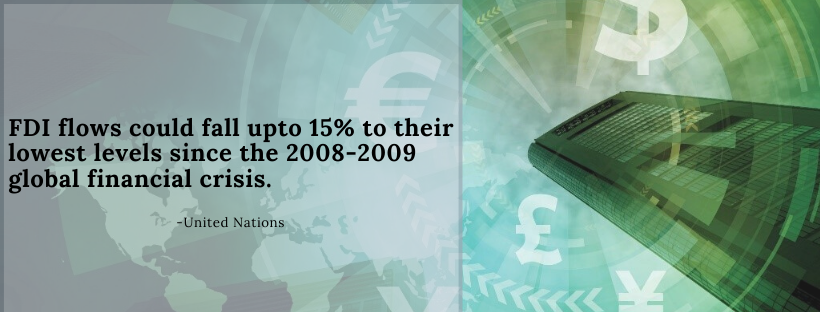
Impact on Economy in the United States
The economic impacts of the Covid-19 outbreak is a challenge for every economy in the world today, and according to economists at the UC Berkeley Conversations event, the U.S. needs to have a result-oriented economic response sustained over a period of time, in order to tackle the current challenge and threat to economy.
The following statistics brought forth at the event, indicate the current scenario in the U.S. today:
- One third of the economy is under lockdown.
- Almost 25% youth are currently unemployed.
- Millions are filing for unemployment relief every week.
- 98% workers in the hospitality sector have lost their jobs.
According to the leading economists attending the discussion on Covid-19, organised by Berkeley, “The recovery program likely will cost trillions of dollars, on top of relief measures already approved by Congress and President Donald Trump. But, they said, aggressive investment and well-designed policy could bring the economy back more quickly and with less long-term distress for workers and businesses.” The experts at the Berkeley event suggested that it’s never a good idea to choose economy over public health, and that every nation that aims for sustainable recovery should prioritize public health.
Worldwide Measures to Curb the Recession
The image below illustrates the economic retraction in different parts of the globe.
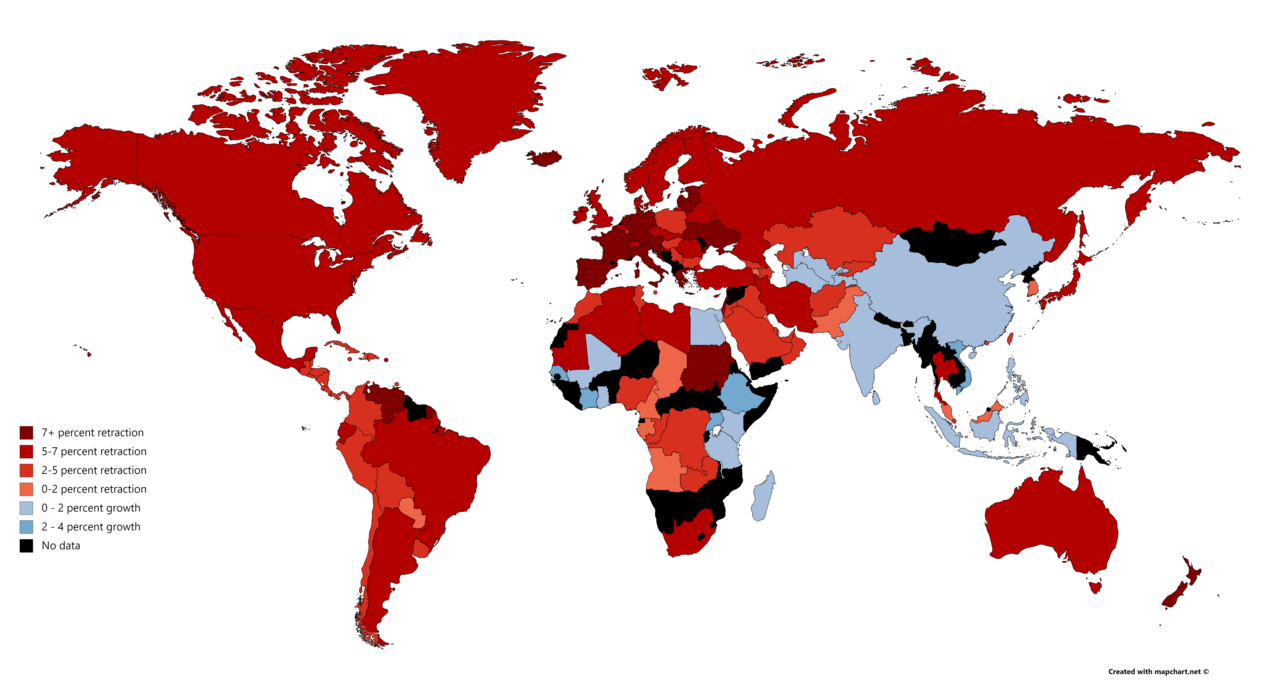
How severe the repercussions of the economic impact will be, depends largely on the duration of the restricted activities to curb the spread of the pandemic, as well as the fiscal policies introduced by the governments to alleviate the crisis. Here are some very recent steps taken by governments and financial institutions in this regard.
- World Bank has set aside US$12 billion, the Asian Development Bank US $6.5 billion and the IMFUS $50 billion for the helping the countries affected with the COVID-19 pandemic.
- In the U.S., the Federal Reserve Bank urged financial institutions to “meet the financial needs of customers and members affected by the coronavirus.”
- Federal Reserve Bank of New York announced expanded overnight repurchase operations by $50 billion on March 9.
- Fiscal measures were announced this month by Japan ($9.6 billion, or 0.19 percent of GDP), South Korea ($9.2 billion, 0.56 percent of GDP), and Italy ($4.1 billion, 0.20 percent of GDP).
Social Impact of the Covid-19 Pandemic
Now that we have looked into the possible economic impacts of the pandemic, let us have a look at the many ways in which it can leave behind a strong social impact.
1] Future of Work Redefined
With the large-scale lockdown forcing people to stay indoors and working remotely from their homes, experts believe this to be the biggest trial run for the feasibility of remote work. Many organizations across the globe have recognized the multiple benefits of remote work for employees as well as employers, which means remote work is here to stay. The future will witness more and more people working remotely as remote work becomes the norm.
2] Online will be the Way to Go
The pandemic has made people realize the wonders of technology and how it’s possible today to work and connect with people and colleagues over a quick call using some very basic technology. We know today that working remotely doesn’t mean one has to compromise on connectivity or productivity. So, in the coming years, meeting on apps like MS Teams or Zoom will be the new normal. Also, there will be a significant increase in apps and their usage for basic everyday tasks like never before.
3] Temporary Rise in Unemployment
Unemployment is deemed as one of the biggest social impacts of the Covid-19 pandemic, more so in the developing nations where a major share of the working population are employed in the informal sector, which means they have no job security. The U.N estimates the average global unemployment rates to be around 10%, with the rate much higher in the developing economies. However, this is temporary and it will get better as the economy grows back to normal.
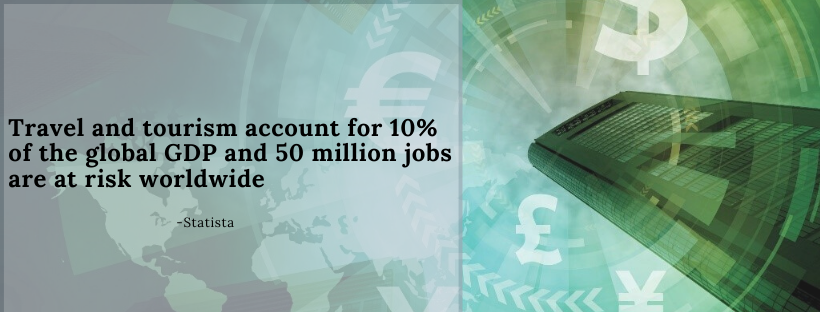
4] Difficult Times for the Poor and the Homeless
The poorest of the poor who live on the streets, without a shelter, form a part of the most vulnerable groups when it comes to the pandemic.
The U.N. Secretary General said, “We must come to the aid of the ultra-vulnerable – millions upon millions of people who are least able to protect themselves. This is a matter of basic human solidarity. It is also crucial for combating the virus. This is the moment to step up for the vulnerable.”
5] Drastic Drop in Pollution Levels
The lockdown across the globe has resulted in very less traffic on the roads, and this has brought the pollution levels to an all time low. Ironically, we cannot go out and experience the fresh air to the fullest. As the lockdown comes to an end, we will have a fresh environment waiting to welcome us back.
While the extended lockdown period has resulted in increased stress levels and even feelings of fear and panic in some people, mental health experts believe it has also resulted in people being more empathetic towards the suffering of others. Also, we’re likely to be more appreciative of our friends and relatives when we meet them after this long hiatus.
Conclusion
The Coronavirus has indeed wrecked havoc in the world today, but we will soon fight the virus as we get to know more about it. For now, efforts are on in the scientific community to come up with a vaccine that saves the world from the clasps of the dreaded virus. As the lockdown period is about to end in many countries, precautions should be taken to ensure the graph doesn’t shoot up. At the end of the day, it’s about us and we should be responsible in following the safety precautions and doing all that is required of us in order to keep ourselves safe.
(Sources: Forbes, United Nations, WHO, Statista, ILO, Berkeley, McKinsey, ORF, CSIS, HBR)
